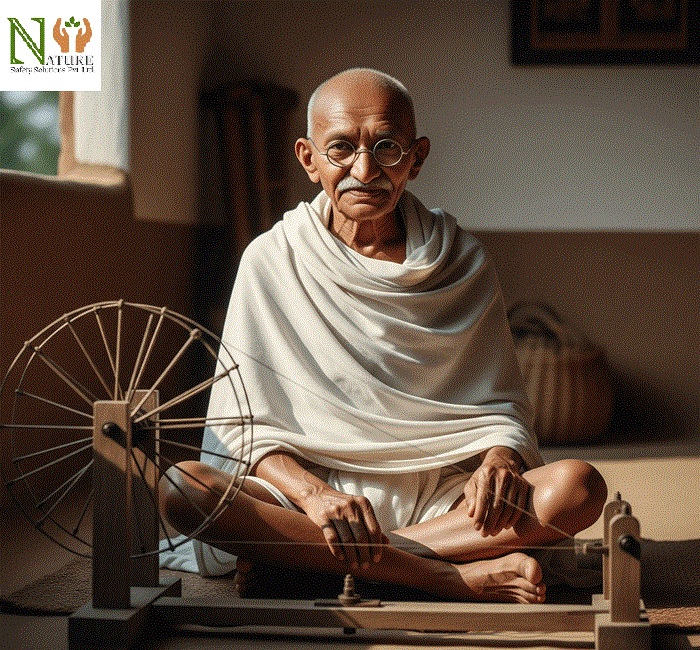Every year, on October 2, India unites to commemorate Gandhi Jayanti, the birth anniversary of Mahatma Gandhi, the Father of the Nation. In 2025, this pivotal day will take place on a Thursday, allowing people throughout the country to stop, reflect and pay tribute to a man whose ideals of truth, non-violence, and unity provided a framework for India’s struggle for freedom.
While Gandhi Jayanti is a national holiday, it is much more than just a day of rest. It serves as an important reminder of values that still have an important place in our fast-changing and sometimes fractured world today.

The Life and Journey of Mahatma Gandhi
Mohandas Karamchand Gandhi, also known as Mahatma Gandhi, was born on October 2, 1869, in Porbandar in Gujarat. Gandhi was timid in his childhood but was educated by the values of truth, discipline, and humility from his parents. He later traveled to London to study law and then to South Africa to work as a lawyer.
It was in South Africa that Gandhi experienced racial discrimination for the first time, which left a lasting impression on him. Rather than reacting with anger or violence, he formulated the theory of Satyagraha—a way of fighting injustice in relation to truth and using nonviolent measures. This was based on his ideas of suffering as a form of resistance. This philosophy was the basis of his leadership in India’s struggle for independence.
Upon Gandhi’s return to India in 1915, he began to work towards uniting Indians against colonialism. Through movements such as the Non-Cooperation Movement, the Salt March of 1930, and the Quit India Movement of 1942, Gandhi showed that ordinary individuals could cause extraordinary change through truth and non-violence. Gandhi was not only an inspiration for Indians but also world leaders, such as Martin Luther King Jr. and Nelson Mandela.
The Importance of Gandhi Jayanti Today
Gandhi Jayanti is more than a celebration of Gandhi’s birth; it is a culturally important national and world event. In 2007, the United Nations proclaimed 2nd October as the International Day of Non-Violence, as Gandhi’s philosophy became a universal call for peace.
For India, Gandhi Jayanti is our moral compass. Looking at Gandhi’s life and thought allows us to ask important questions: Do we treat others with dignity? Do we peacefully resist injustice? Do we make choices that protect our environment and promote equity in our society?
In a world that still has violence, intolerance, and inequality, Gandhi’s principles continue to be a beacon of hope.
Celebration of Gandhi Jayanti 2025
The way in which Gandhi Jayanti is celebrated represents Gandhi’s values of simplicity, peace, and service. On Thursday, 2 October 2025, the day will be observed with different events all across the country:
- Tribute at Raj Ghat– Political leaders, citizens, and visitors will visit Gandhi’s memorial site in New Delhi to pay floral tribute and pray and sing hymns in his legacy.
- School and College Activities– Children and students will engage in debates, speeches, essays, and performances about Gandhi. These activities serve to help the younger generations yield Gandhi’s message.
- Cultural Contributions– Gandhi’s favorite bhajans like Vaishnav Jan To and Raghupati Raghav Raja Ram will sung to reconnect and remember people about his spirituality.
- Swachh Bharat Initiatives– Many organizations will organize cleanliness initiatives based on Gandhi’s belief that “cleanliness is next to godliness”.
- Peace marches and rallies– Citizens will walk together and carry banners promoting peace, unity, and non-violence.
Unlike large and extravagant celebrations, Gandhi Jayanti is celebrated in a profound and simple manner, which is probably the most befitting tribute to the man himself.
Gandhi’s Principles for a Contemporary Existence
Gandhi, who lived over 150 years ago, continues to resonate with his insights. Here are some of the distinctions we learn from him:
- Non-Violence as a Form of Strength: Gandhi did not believe that true courage should be exhibited in aggression, but through patience and non-violence. He provides an alternative view to violence, even nowadays; worldwide, communities are battling with violence.
- Truth as a Way of Life: Gandhi’s most important principle of Satya (truth) is a vital reminder of the importance of honesty, especially in an age of misinformation and fake news.
- Unity in Diversity: Gandhi respected all religions and communities, regardless of their beliefs. His belief that India’s diversity is a source of strength is particularly worth upholding in today’s contemporary timeline.
- Live Simply, Think Critically: Gandhi’s ideas of living a minimalist lifestyle teach us to live simply but also to live minimally in order to avoid waste and provide sustainable living for future generations.
- Servicing Others: Gandhi consistently put the needs of the poor and vulnerable above his own, as a marker of leadership: true leadership means serving others.
A Time to Contemplate
What makes Gandhi Jayanti so significant is that it prompts more than simply celebration; it inspires contemplation. Gandhi Jayanti encourages us all to feel and act on the responsibility to contemplate our own lives that day:
- Are we respectful towards others?
- Are we being honest with ourselves and others?
- Are we trying to create peace rather than conflict?
By asking ourselves these kinds of questions, Gandhi Jayanti is no longer a day of remembrance but a personal commitment to be more intentional about how to live a better life.
Also read:-
Rabindranath Tagore Jayanti: Celebrating the Legacy of a Timeless Visionary
